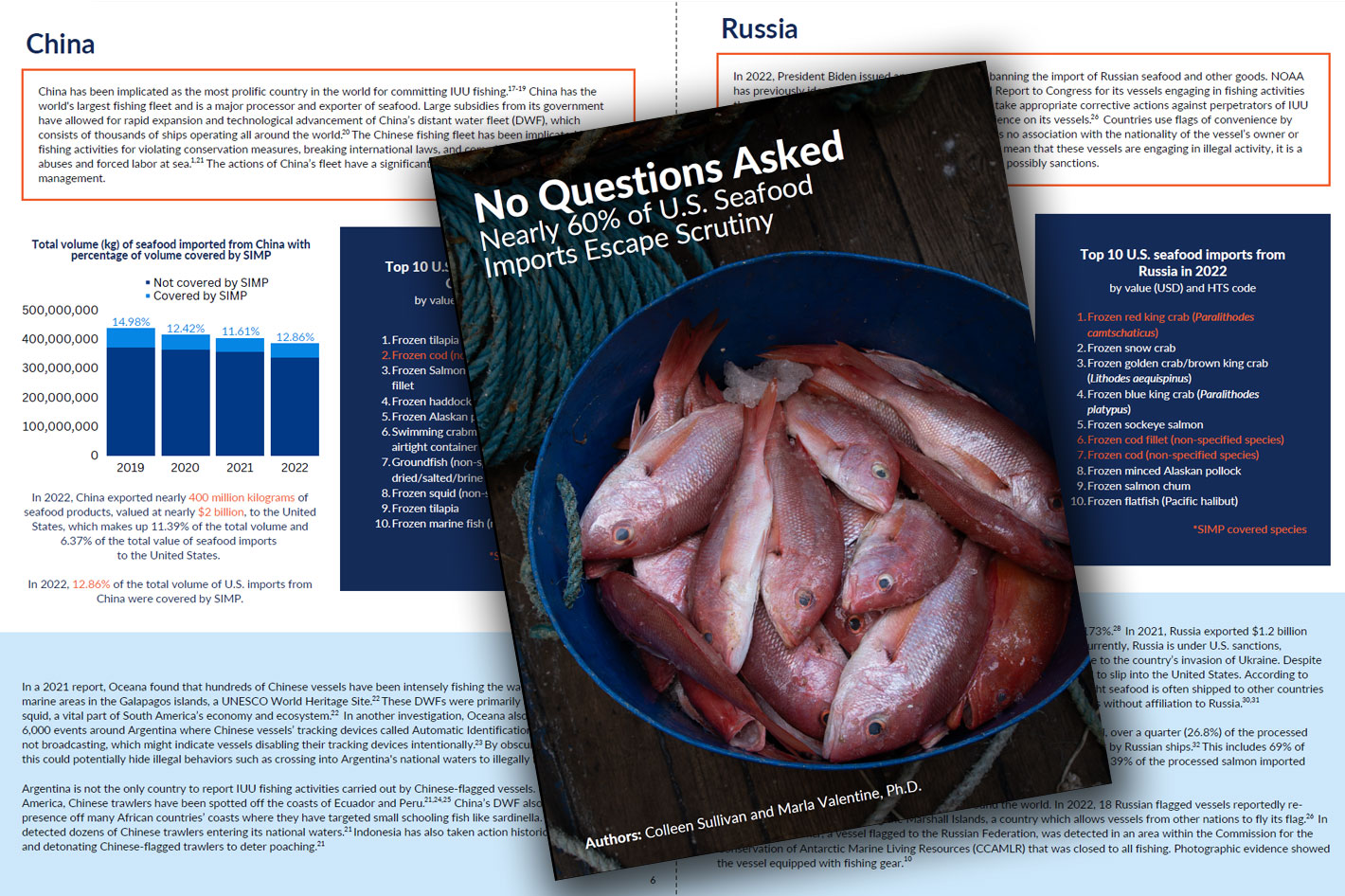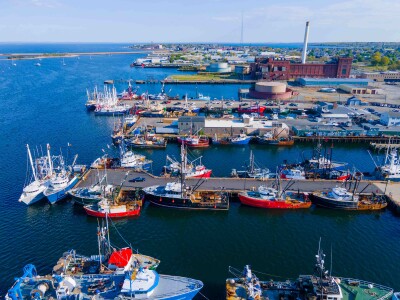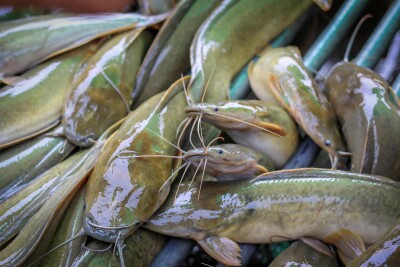While Congress is worried about what the Tik Tok platform may do the young generations, Americans are eating seafood from countries with track records of crimes at sea, like China and Russia.
Nearly 60 percent of U.S. seafood imports escape scrutiny, according to a report from the environmental group Oceana, which concludes that the federal government is allowing U.S. dollars to drive illegal fishing and forced labor around the world.
Despite the National Oceanic and Atmospheric Administration's Seafood Import Monitoring Program (SIMP), which requires catch documentation and traceability for some seafood at risk of IUU fishing and seafood fraud, Oceana found that only about 30 percent of the total volume of seafood imports from the countries mentioned in the report are subject to traceability requirements by the U.S. government.
The problem, according to Oceana, is that the SIMP program only covers 13 species and species groups representing about 40 percent of U.S. seafood imports, and the traceability requirements only apply from the fishing vessel or farm to the first point of entry into U.S. commerce — the U.S. border.
The analysis highlights U.S. government trade data for seafood imports from 10 countries that have been recognized internationally for illegal, unreported, and unregulated (IUU) fishing offenses or human rights abuses, including China and Russia. Other countries included in the analysis are Taiwan, Cameroon, Mexico, Costa Rica, Senegal, Panama, Cambodia, and Vietnam.
The 22-page report, titled “No Questions Asked Nearly 60 percent of U.S. Seafood Imports Escape Scrutiny”, authored by Colleen Sullivan and Marla Valentine, says that in 2022, the United States imported over $30 billion of seafood from 150 countries, and the top contributor was China, which exported almost $2 billion of seafood products to the United States.
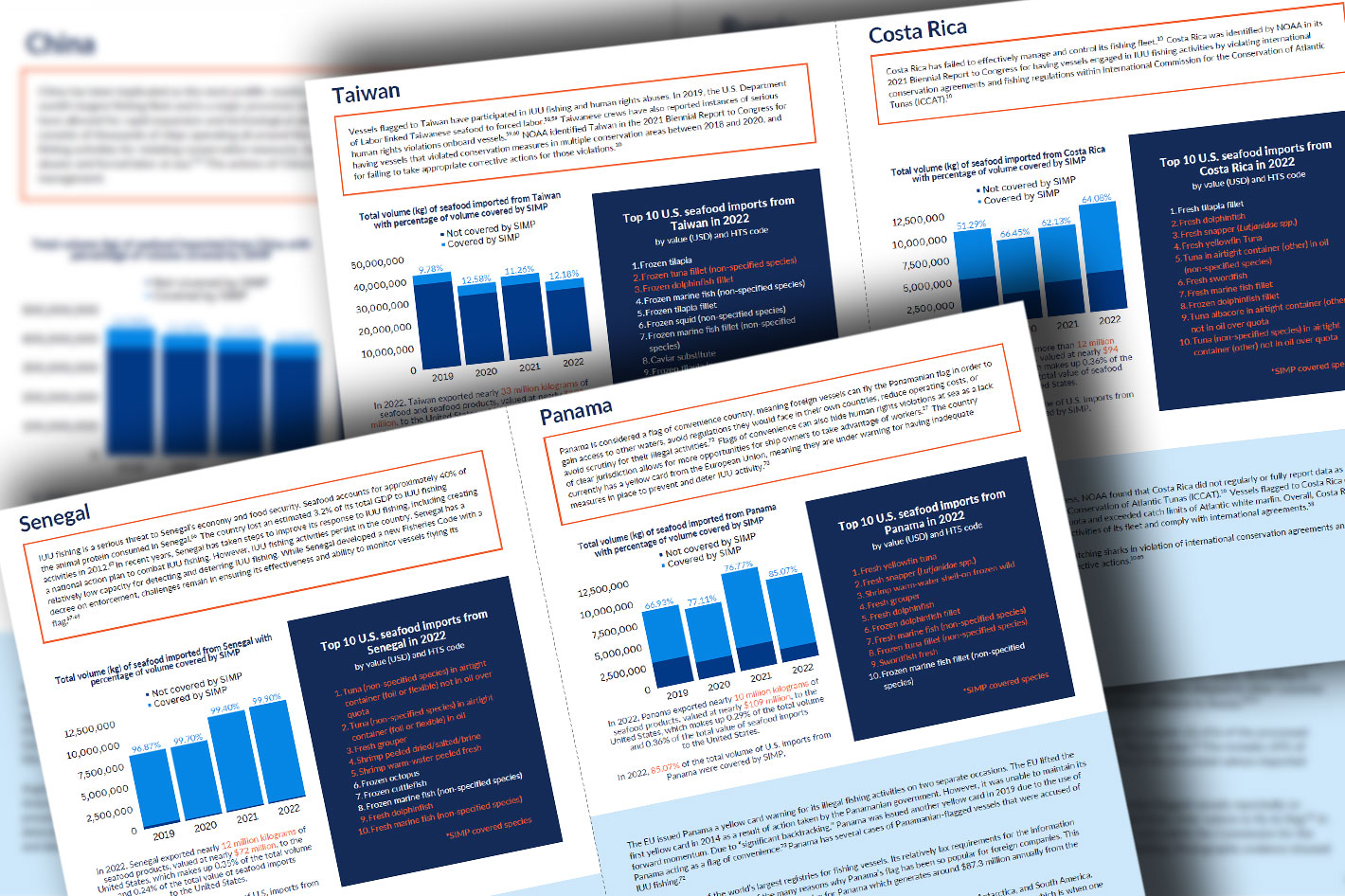 China and Russia are top offenders
China and Russia are top offenders
Oceana notes that “only about 13 percent of the total volume of U.S. imports from China were covered by SIMP and subject to documentation and traceability requirements. Vessels flagged to China have consistently been cited by international authorities for illegal fishing and human rights offenses at sea. Between January and June 2022 (before the temporary ban on Russian imports), Russia exported nearly $1 billion of seafood products to the United States and only 48 percent were covered under SIMP. Russia is the second top offender for IUU fishing and human rights abuses, according to the IUU Fishing Index.”
“No one wants their seafood dinner coming with a side of forced labor or illegal fishing. But the bottom line is Americans are eating seafood from nations known for the most egregious behaviors at sea,” said Oceana campaign director Marla Valentine. “Oceana’s analysis exposes just how much seafood crosses our borders and goes onto our plates without any traceability requirements. The good news is the U.S. government has the tools to ensure all seafood sold in the United States is safe, legally caught, responsibly sourced, and honestly labeled.
"The Seafood Import Monitoring Program can shed light on notoriously opaque seafood supply chains and give the government enough information to proactively prevent illegally sourced seafood from entering the United States — but only if it is expanded to cover all seafood imports, instead of just a small handful. It’s time for NOAA to reject seafood sourced from IUU fishing and forced labor.”
According to the authors of the report: “Although the past three U.S. Presidents and their administrations have claimed to have combating IUU fishing as a major goal, the slow progress and improvements to the United States’ oversight of the seafood supply chain has contributed to the influx of IUU fishing products onto Americans’ plates.”
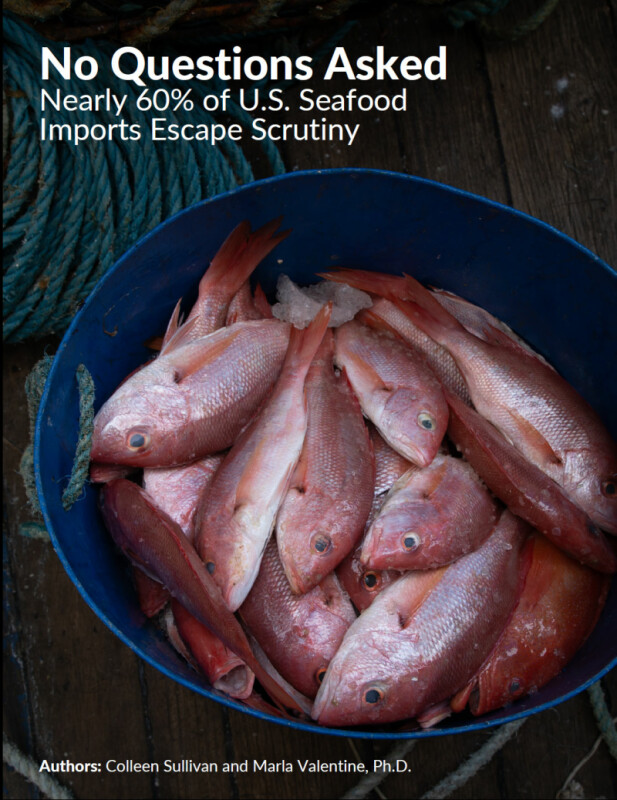 How the EU deals with IUU fishing
How the EU deals with IUU fishing
According to the Presidential Task Force on Combating IUU Fishing and Seafood Fraud established in 2016, the original goal of the U.S. government was to eventually expand SIMP to all seafood. However, in the seven years since NOAA implemented SIMP, the goal has not been met. As a result, the United States’ high demand for seafood combined with SIMP’s limitations allow seafood sourced from IUU fishing and forced labor to flood the U.S. market, driving economic and ecological loss around the world.
As a result of this analysis, Oceana recommends that the U.S. government take the following actions:
- Expand catch documentation and traceability requirements of the Seafood Import Monitoring Program (SIMP) to all seafood.
- Improve SIMP implementation by updating the key data elements and critical tracking events collected to better allow NOAA to analyze the data and inform risk-based screening, audits, and enforcement.
- Extend traceability from the boat or farm to the dinner plate and provide consumers with basic information about the seafood they purchase.
- Build in mechanisms to address forced labor and other human rights abuses.
Public and political support for policies to end illegal fishing and seafood fraud are overwhelmingly supported in the United States. A nationwide poll that Oceana released in January 2021 showed that 89 percent of voters agree that imported seafood should be held to the same standards as U.S. caught seafood. In December 2022, Rep. Jared Huffman (D-Calif.), along with 15 bipartisan signers, sent a letter to NOAA expressing support for expanding SIMP to all seafood and called on NOAA to include a timeline for expansion to all seafood imports.





